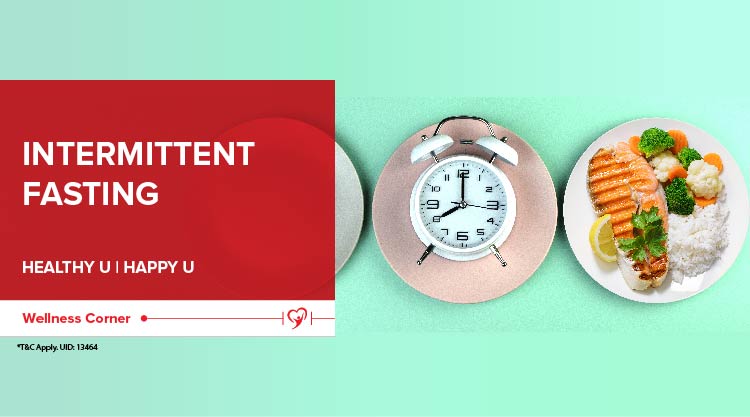

Intermittent Fasting for Weight Loss
- Overview
- How does it work?
- What to Eat?
- Benefits
- Does it help in Weight Loss
- Intermittent Fasting Plans
- Side-effects
- Conclusion
- FAQs
What is Intermittent Fasting?
Regarding diet and fitness, the focus is always on what you eat. However, intermittent fasting has changed the narrative. First, it asks when you eat. It requires you to not eat for a specific period, i.e. you fast for certain hours each day or week.
It is based on the scientific theory that the human body can go without food for days. Before the advent of farming, hunters and gatherers survived from one meal to another, each separated by even days. This is because the act of hunting or gathering required a great deal of time and energy and couldn’t be done every day.
Even 40-50 years back, when we didn’t have personal computers or the internet, people worked and played outside more. But now we stay in one place for longer due to work or while relaxing, and we binge eat, which leads to extra consumption of calories. This puts us at a higher risk of obesity, diabetes, and heart disease, among other illnesses.
This is why intermittent fasting if done correctly, can help.
How Does Intermittent Fasting Work?
Intermittent fasting can be done in many ways - daily 16-hour fasts or fasting for a whole day, twice weekly. During this period of no food, the sugar stores or glucose in our body get exhausted, and we start burning the calories consumed during our last meal. For example, if someone is eating three meals and snacks without any workout, then the calories build up without burning fat every time they eat.
What to Eat During Intermittent Fasting?
You may have water and low-calorie beverages such as black coffee or green tea during the hours you are not eating. And during your eating hours, you can have regular and nutritious foods like whole grains, green vegetables, healthy fats, and lean protein. The whole purpose of intermittent fasting will fail if you eat high-calorie junk foods.
What are the Benefits of Fasting?
- Intermittent fasting doesn’t only burn fat; it also helps build metabolism.
- It leads to a longer lifespan, leaner body, and sharper mind.
- It protects the body from many chronic diseases like type 2 diabetes, heart disease, neurodegenerative disorders, inflammatory bowel disease, etc.
- This fasting improves blood pressure and maintains muscle mass and tissue health.
Does Intermittent Fasting Help in Weight Loss?
Many studies have shown intermittent fasting is quite effective for weight loss, and a person can shed up to 5kg over ten weeks. However, it can vary from person to person, and there is no definite answer to how much weight you can lose. Consulting a doctor or nutritionist is recommended.
Intermittent Fasting Plans
There are several intermittent fasting diet plans, but the most popular ones are:
1. Time-restricted fasting or 16/8 plan:
- You fast for 16 hours every day and normally eat within the 8-hour window
- Usually, people skip breakfast and restrict their eating period to 8 hours, from 1 – 9 pm. This is an easy pattern to follow because we tend to fast while we sleep
2. 5:2 fasting:
- Have your usual diet five days a week and fast two days per week
- During the fasting days, you need to limit your calorie intake to 500–600 calories
- Not having food for 24 hours or longer can be dangerous
3. Alternate-day fasting:
- Have a regular meal one day and fast completely the other day or have a small meal of fewer than 500 calories the next day
4. 24 hours fasting:
- Also known as the Eat-Stop-Eat diet, this is usually done twice a week maximum
- In this, you fast for 24 hours, either from one breakfast to another or lunch to lunch
- During the fasting period, you can have water, tea and calorie-free drinks
Your body will get accustomed to intermittent fasting, and you might witness behavioural change while adapting to the new routine.
Are there Any Side Effects of Intermittent Fasting?
Though intermittent fasting is safe for many people, it’s not meant for everyone.
- If you are pregnant or breastfeeding, skipping meals can be counterproductive.
- Similarly, if you have certain diseases where taking regular food is essential, you should not be doing intermittent fasting.
Always consult your doctor before you begin an intermittent fasting journey for weight loss.
Conclusion
Intermittent fasting usually has many benefits but seek a medical expert’s advice before you start doing it. And remember that you need the discipline to follow any health regime. Once you are determined, any fitness trend that suits your body and lifestyle can help you keep your weight under control.
FAQS
1. Is intermittent fasting safe & suitable for everyone?
IF can be safe for many people but it may not be suitable for everyone. It's crucial to consider your individual health and lifestyle before starting, and it is also important to consult with a healthcare professional, especially if you have underlying health conditions.
2. Can I drink water during the fasting period?
Yes, staying hydrated with water, herbal tea, or black coffee is usually allowed during the fasting period.
3. How long does it take to see results from intermittent fasting?
Results vary among individuals, but some may start noticing changes in a few weeks.
4. Is intermittent fasting suitable for athletes?
Athletes can use IF, but it's important to plan meals carefully to meet their nutritional needs for performance and recovery.
5. Can I do intermittent fasting while pregnant or breastfeeding?
It's generally not recommended during pregnancy or breastfeeding, as it may not provide enough nutrients for both the mother and baby.
6. Are there potential side effects of intermittent fasting?
Side effects can include hunger, irritability, and fatigue, especially when starting. It's essential to listen to your body and adjust as needed.
7. Can I exercise while fasting?
Yes, many people exercise during their fasting window, but it's important to stay hydrated and monitor how your body responds.
Source: hopkinsmedicine.org, healthline, medicalnewstoday, mayoclinic.org
Get a right Health Insurance today & protect your savings from unexpected medical expenses.
Following a healthy diet can help one stay healthy and avert various illnesses. However, a sickness or illness can get hold of one anytime. To ensure you stay secure during such times get family health insurance to secure yourself and your family.
Disclaimer: This blog provides general information and discussions about health and related subjects. The information and other content provided in this blog, website or in any linked materials are not intended and should not be considered, or used as a substitute for, medical advice, diagnosis or treatment. Kindly contact your Doctor before starting a new medicine or health regime.

/healthy-diet_s.png?sfvrsn=92ddfb17_2)
/nutrient-rich-s.png?sfvrsn=ef2581d1_2)
/home-workout-s.png?sfvrsn=6b234795_2)
/yoga-for-mind-s.png?sfvrsn=f8c16989_2)
/yoga-for-body-s.png?sfvrsn=9a6b516b_2)












 Health Insurance
Health Insurance  Travel Insurance
Travel Insurance  Car Insurance
Car Insurance  Cyber Insurance
Cyber Insurance  Critical Illness Insurance
Critical Illness Insurance
 Pet Insurance
Pet Insurance
 Bike/Two Wheeler Insurance
Bike/Two Wheeler Insurance  Home Insurance
Home Insurance  Third Party Vehicle Ins.
Third Party Vehicle Ins.  Tractor Insurance
Tractor Insurance  Goods Carrying Vehicle Ins.
Goods Carrying Vehicle Ins.  Passenger Carrying Vehicle Ins.
Passenger Carrying Vehicle Ins.  Compulsory Personal Accident Insurance
Compulsory Personal Accident Insurance  Travel Insurance
Travel Insurance  Rural
Rural 










